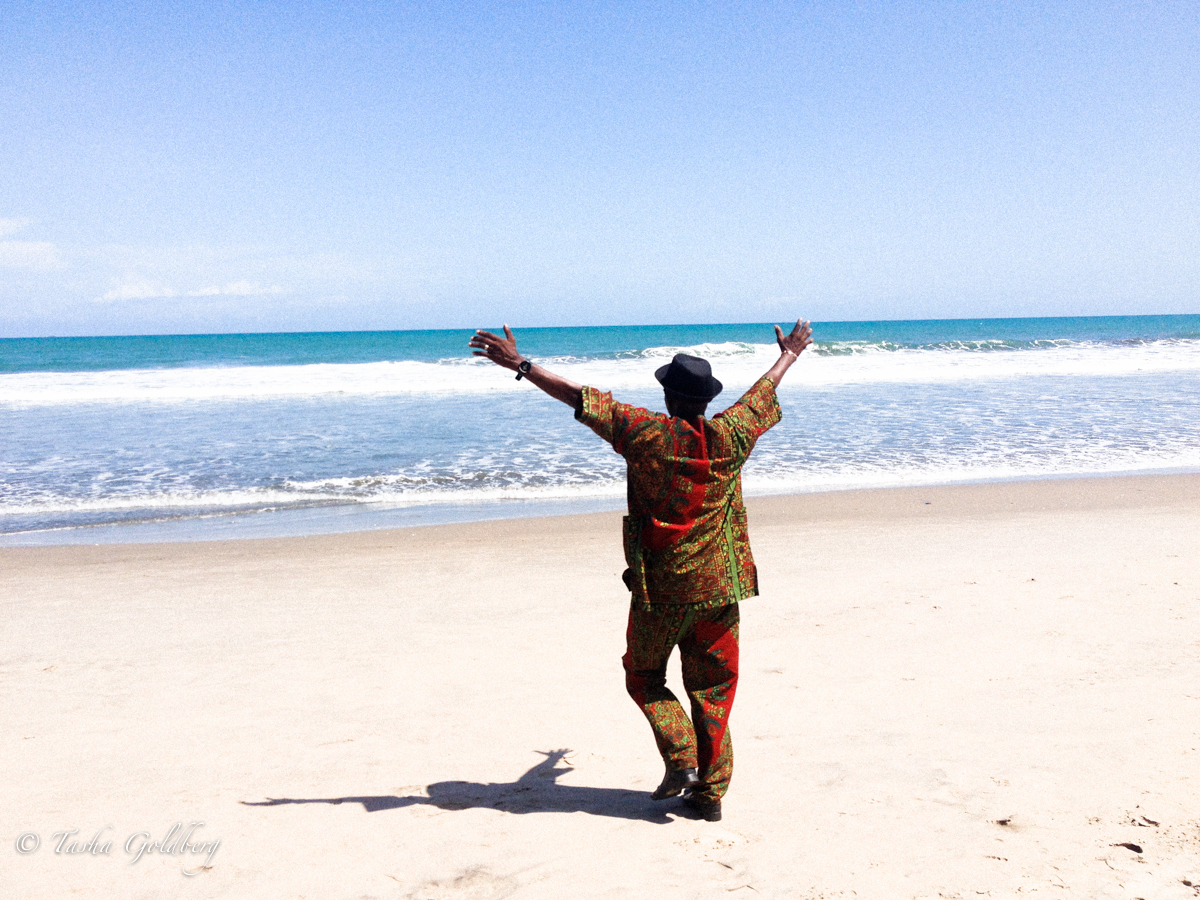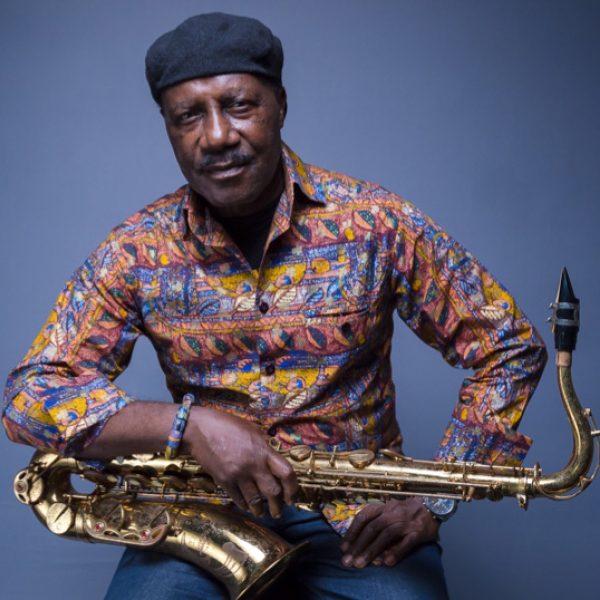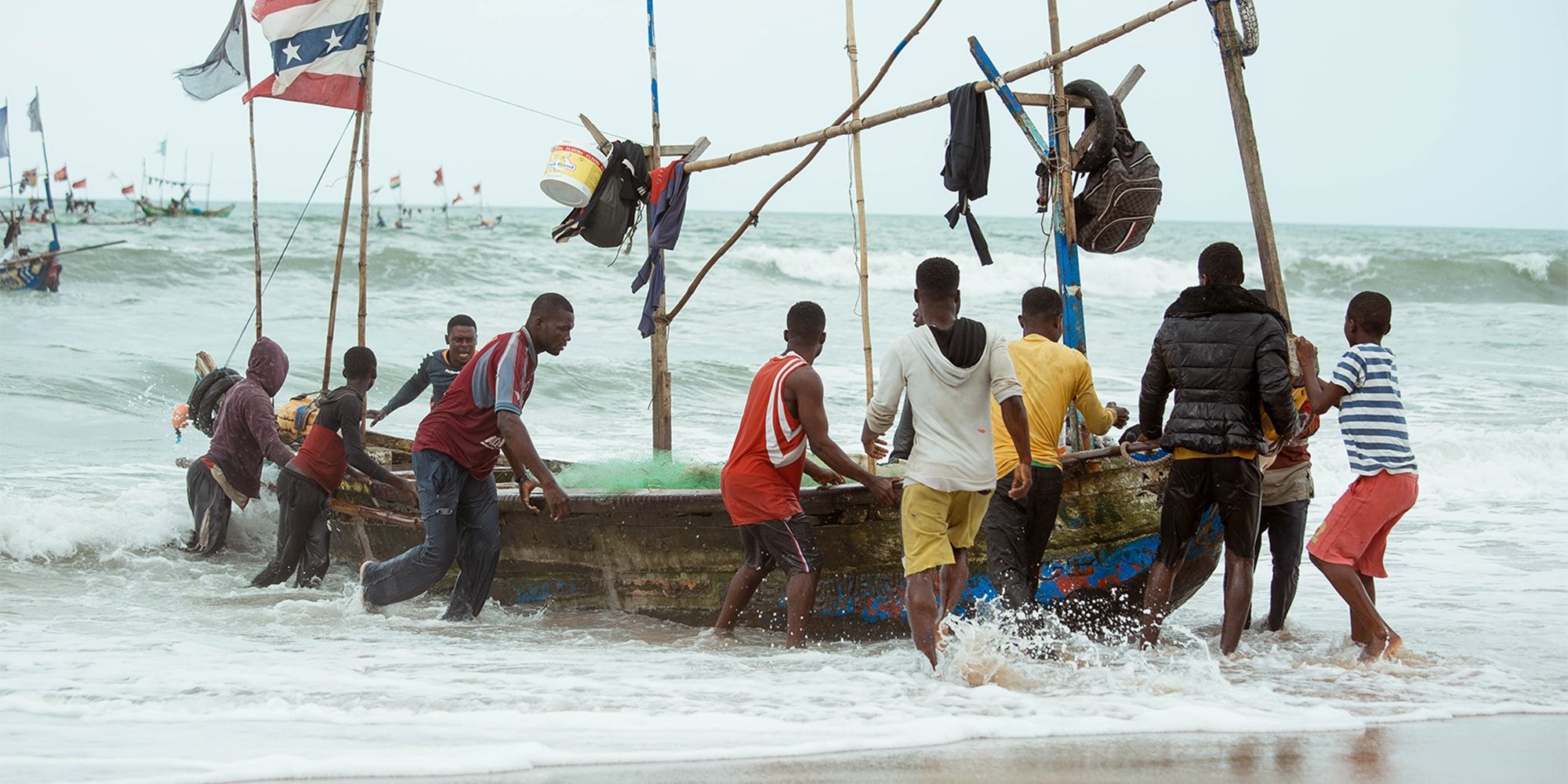Okaidja Afroso is a Ghanaian singer, dancer, guitarist and composer based in Oregon since 1999, but still deeply tied to his Gãdangmé roots in a fishing community of coastal Ghana. Okaidja recently released his sixth album, Jàkú Mũmɔ – which means “ancestral spirit" in the Gãdangmé language. It is a rich tapestry of acoustic sound, blending palm wine guitar, beach-side fishermen’s songs with layered percussion and call-and-response vocals and a keen pop sensibility. Tuneful, fresh and grooving, the release is a unique entry in the canon of contemporary West African roots music. Afropop’s Banning Eyre reached Okaidja over Zoom to discuss the album. Here’s their conversation.
Banning Eyre: Okaidja, how are you?
Okaidja Afroso: I'm good. I'm good. How about you? I am a fan of your program.
Well, that’s good to hear. Where am I reaching you?
I'm in Portland, Portland, Oregon.
You've been there a long time?
Since 1999. So 22 years. Obo Addy brought me. I was one of the young artists he wanted to work with, so he brought me to the U.S. with him.
Obo Addy was a pioneer in bringing Ghanaian traditional music to Americans. I used to live in Eugene back in the early ‘80s, so I remember seeing him with his group when he was fairly new on the scene.
Yes. Yes.
Well I'm enjoying this record a lot and the videos. Really sweet stuff.
Thank you.
Let’s start at the beginning. Tell me about your youth and how you came into music.
Yes. I grew up in this small fishing town west of Accra. It’s called Kokrobite. It was a really, really vibrant town, very small, with a lot of fishing activity, lots of singing. So I soaked up a lot of things. I fell in love with traditional Ghanaian dancing. So I joined a group and I started working with a dance teacher. I became friends with him. And then along the line, even though my dancing was really bad, I decided I wanted to go and join the National Dance Company. So I went, and they thought I was not good, but they taught me. They said that if they took me and taught me, I could be better. So they gave me a shot. And that started my whole dancing career. That went for about five years at the University of Ghana.
I've been there. In Legon.
So that's how it all started. I am a dancer first. So when I play music, I think like a dancer.
That's a very good approach. So is that where Obo Addy found you and brought you to the U.S.?
Yes. Before that, a friend of mine invited me to go and teach Ghanaian traditional drumming and dancing in Germany. And then I came back. One day I was walking out of the rehearsal. He must've been watching the rehearsal or something. He approached me and asked if I would like to come and work with him in the U.S., and I said, “Yes. Of course. I've heard your name so many times.” So that's how it started.
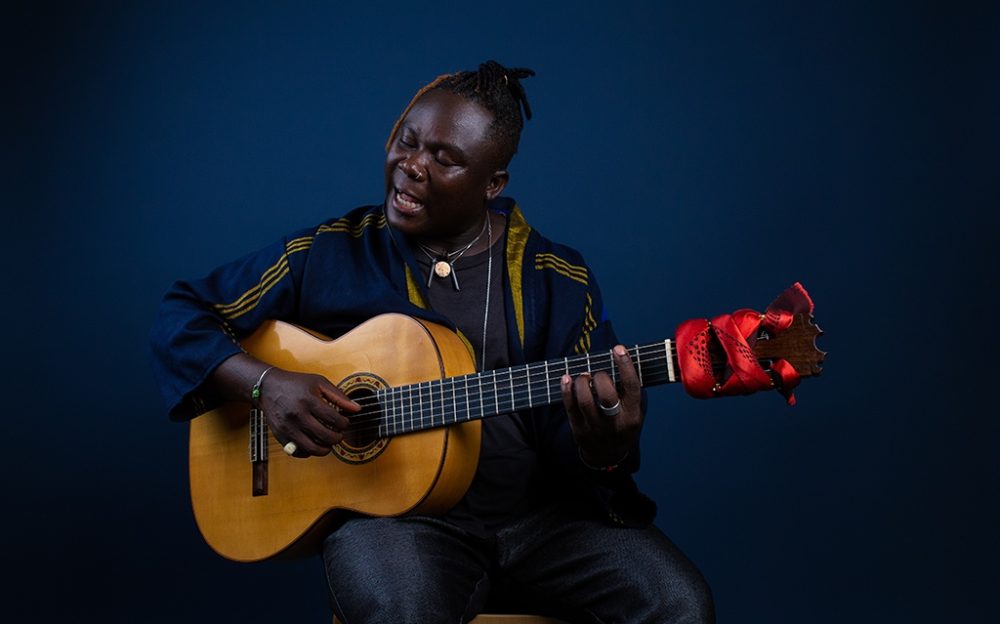
Tell me about your recording history.
My very first record album is called The Traditionalist. On that album I wanted to record something that was raw, like I heard it back in Ghana. So that was all traditional singing and drumming. Then I recorded another album, and that's where I started listening to Congolese music, listening to other artists. Still then I was not playing the guitar, but I wanted to write songs that had a little bit more narrative about my culture in them. And that album is called Obutu Apla. The next album after that came after I taught myself to play the guitar from what I was hearing, and I wanted to bring that onto this album. That album is called Messenger. Then after that I recorded an album with a Canadian harmonica player, Mike Stevens. We paired some Ghanaian gyli xylophone music with the harmonica. It was interesting.
That gyli music is challenging. The rhythms are complex.
[Laughs.] Yes, that was really interesting. After that I recorded my palm wine album, so when you look at my work, there's an evolution from the traditional all the way to today, but every single time I record something, I feel like, “I did this, but that's not really what I want to do. Let me go to this, what I really want to do.” So I keep ageing myself. But along the line, this whole time, I keep the idea of bringing forth my culture, the culture of the Gãdangmé people on the coast of Accra. This idea always rings in my head, to preserve my culture. I've always been using the knowledge that I have acquired about my culture, the fishermen and their way of life. I'm always bringing this to the stage and I always talk about it.
And so I said, "Well, this is the time. Why don't I just go for it, and construct a project that is multi-layered and that showcases my culture in a documentary?” But I also wanted to show that just because I am from Africa and I have this deep traditional culture, I still want to keep putting flame to it. I also have this yearning for progress, and this is where it brought me to: how do I approach colors, different flavors and colors on the guitar, bottles, drums. I bring all these things together with this project.
You say you did a palm wine guitar album.
Yes. it’s called The Palm Wine Sea (2017). That was the album before this one.
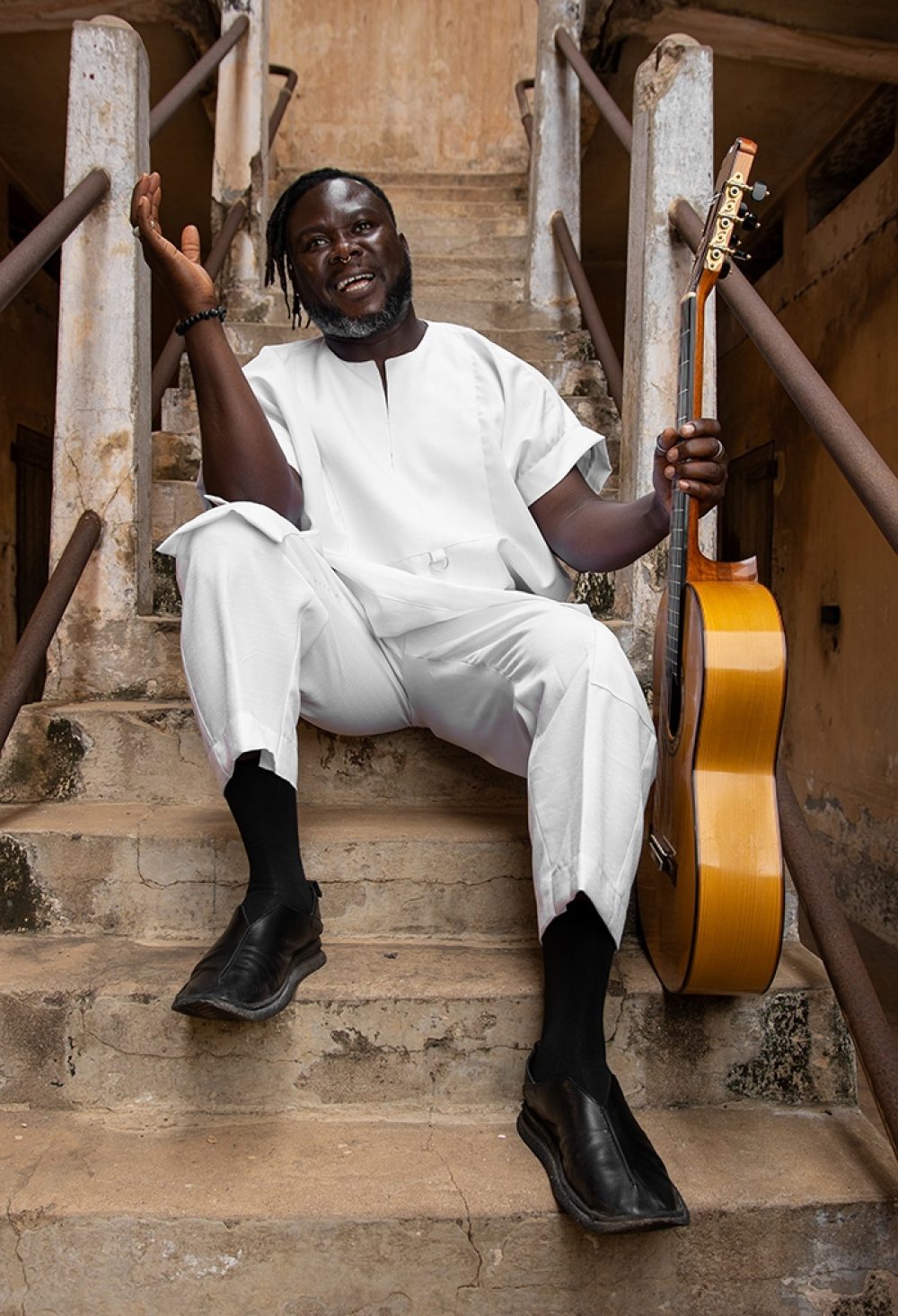
So you've done six albums. But let's focus on this one, Jàkú Mũmɔ. I dig the way you play guitar. I'm a guitarist myself. I spent some time with the great sage of palm wine guitar, Koo Nimo, many years ago, and I have recently been in touch with his protégé, Kyekyeku.
Yes I know Kyekyeku.
I figured you must.
Yeah, he's a cool guy. I love the work he's doing.
Do you go back to Ghana often?
I do. I do. Within the last two years I've been back three times, because I was recording. Actually all my albums were recorded here except this new one, Jàkú Mũmɔ. With this album, I wanted to do everything in Ghana, so the recording, the videos, everything was made in Ghana with Ghanaian creators. I was lucky enough to find very talented young artists, videographers who also wanted to do something special.
I've seen some of your performance videos.
Yes, but there are other videos that we haven't released yet. There is a 30-minute documentary, and then there are two films that will be part of our stage performance as well. And we have music video coming out for the song “Wole Worhe.”
“With eyes wide open.” Great song. So the musicians on this album live in Ghana.
Yes. I recorded with artists there. When Covid came, I was wanting to write this album. I wasn't doing anything so I said let me just start it. You know that Koo Nimo works with George Spratz. George is a a good friend of mine, and we do writing together. So I wrote a lot of the lines with George. George has been with Koo Nimo for many, many years, and so lots of the flavors come from George as well. Then I found Francis Osei, who is a wonderful drummer, but also a very good recording engineer, and he recorded this album and also mixed it.
It makes sense that you recorded in Ghana. I was wondering how there could be so many awesome Ghanaian musicians in Portland.
Yes. But I knew a very good mastering engineer in Portland, so I wanted to bring it back for that. I wanted the mastering to be here, because even though the recording is finished, I am still hearing things in my head that I would like to be there and I want to make sure everything pushes true.
Well, it's a very nice sounding record. Talk to me about the idea of this record, the goal.
There are a lot of things I feel are fading from my culture, the Gãdangmé people. One of them is the language. The language is going really fast. It's mixed with English a lot.
This is the Ga language.
Yes. The Gãdangmé people consist of the Gas and the Adangbes, and we are in Accra. Because of our geographical location, it makes it so that everything, development, every new thing that happens in Ghana, happens in Accra. So that is good for economics, but it is not good for people who want to maintain their culture. It makes it so that our culture is kind of fading and language is fading too, and I want to help in my small way by writing songs that re-energize my people. So the lyrics in the song are like “Wole Worse” talk about fisherman and how they used to be the culture-bearers. Without them, our culture would be gone by now, and I wanted to highlight this part of my culture that I really love, but I couldn't do that without including fisherman. So I wanted to go to fishermen and work with them directly, and I was able to get connected with Agash Sowah and his group, and the fishermen from my home town, Kokrobite.
They were right on it and we started working together. The idea was to write songs that were new songs, but sound old. So when you hear the album, this is all new songs that I wrote, but that I wanted to sound old. I didn’t want anything to be so shiny and new. This whole album is to tap into Gãdangmé heritage, because for us Africans, there is so much that we want to learn from the outside world that we forget about our own cultures. I think that being in America has really helped me to see that vividly, because I am outside. Standing on the outside I can see what I wish would continue in my country and my culture.
You say the Ga language is disappearing.
It is. So here's one very significant example. The names of the months, January through December. [He names the months in Ga]. When the Ga people are speaking their language now, we don't mention the names of the months. Most people don't even know the names of the months. So we would say last month, next month, two months ago, six months ago. The majority of the people will not mention the names of the months. Totally gone, during my lifetime. I remember fisherman would use these words all the time. But now, even younger fisherman do not, because of our location, there is so much influence on the language. Now there is awareness. People are trying to hold on to the language.
The other part of the project that I wanted to highlight is global warming, and how fisherman from my town and across Ghana and many parts of the world feel the impact. The ocean is moving. Where I used to play on the beach, when I go to visit, is totally in the ocean right now. So for the people who are living there, they feel it. There are times that fishermen are passing where they used to park their canoes. They cannot park there anymore because the ocean is coming really fast. Then there are also some social issues about where I feel that fisherman and farmers are holding the economy in a very special way. Farmers get subsidies from the government. Fishermen don't. The farmers get loans, fertilizer for free. They get several things. But fisherman don't get that.
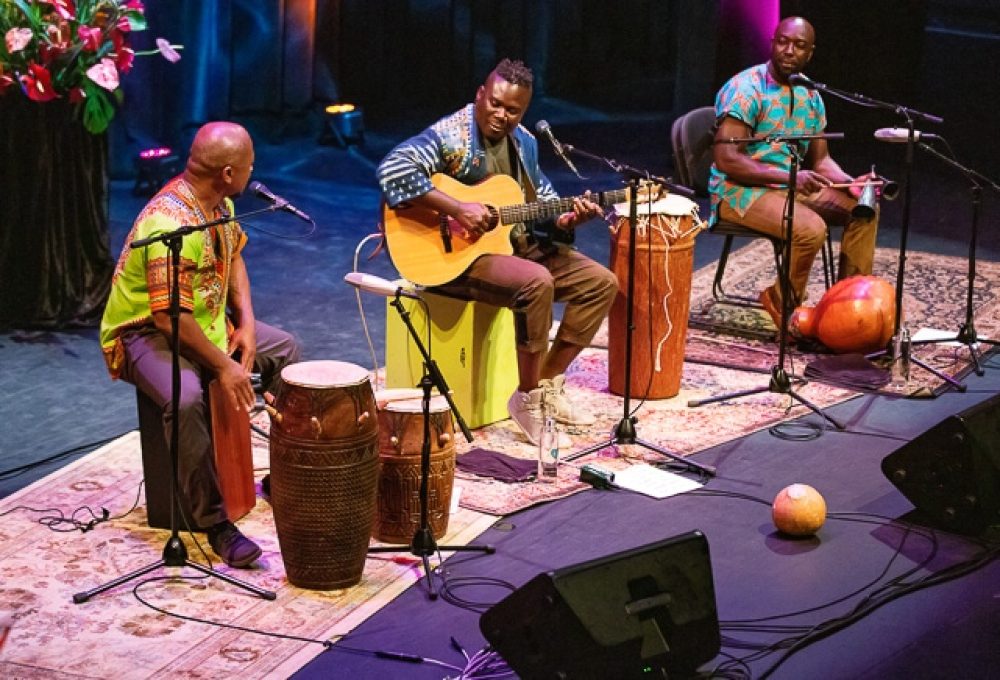
Is it that the farmers create things that get exported, whereas fishermen mostly feed the local population?
I'm not sure why, but I think it is something that's been going on for generations. And part of it is advocacy. There is no one advocating on behalf of the fishermen, but there are a lot of people advocating for the farmers. Farmers have more academic education. So they end up knowing how to access government programs. Stuff like that. Fishermen don't tend to have an academic education, so the connection between them and government officials isn't there. The link breaks. I think that's part of the problem. For me, I don't think it should be like that because even if they don't have an academic education, they have very valuable ecological knowledge. There are a lot of ways that people could access their knowledge.
Have you heard the show we did about Gumbe music?
No.
You should. I think you'll enjoy it. It has some fishermen’s music in it. I think the style is called Kolomashi.
Yes. Kolomashi.
It was very interesting. I remember them talking about the generational issue with young musicians. They said that kids of fisherman are choosing other professions, but they were loyal to the tradition of fishing. It was amazing music. But let's talk about the music on your new album. You are combining elements of tradition, but you're also bringing in palm wine guitar and other styles. It's a unique sound.
The style of music I play I like to call it Afro Soul. It's a mixture of African, polyrhythmic styles of music, mixed with highlife, jazz and Afro Zen music... I feel like a lot of times I want to play the music that I would like to hear. I've had other influences too. I remember the first time I was in a music store when CDs were around. And I listened to Lokua Kanza for the first time. I was like, “Oh my God, this vocal is so delicate.” So I started following Lokua after that. Everything he does, I love it. And then from there I discovered Richard Bona. I love his music. So for me, these two artists and also Blick Bassy. I love their vocals, but I know that Ga is a very hard language to sing in.
Why is it hard to sing in?
Because if you're going to sing and you don't write in Ga, and you're not careful with how you construct the lines, you go directly to how they sing in highlife in Ghana. Because you've heard it so many times, your mind wants to sing like that, what you know already. But for me, instead of constructing the words first, I create guitar lines and then find words to match the guitar line. So that totally removes me and puts me where I want to be.
Is Ga a tonal language where rises and falls in pitch can change the meaning?
No. There's no rule to that. I just feel like a lot of people who are using this language, Ga, to write songs, soak up a lot of what's in the environment. If you've heard someone singing in Ga, then you want to use the same style of singing and words that they use. I like to find names, for example. I'm very particular about the names I use in my songs. I want them to be names like common names that are interesting so that when you sing them, it sounds good.
For example?
Like Kwale and Mole. You see how that rolls off your tongue? [He sings.] When I sing like this, I know that this is something I have never heard in a Ga lyric. The reason I'm able to get there is because I use the guitar to guide me. I start with the music, the chords, the line. And then I ask, what can I do to bring words to match these lines?
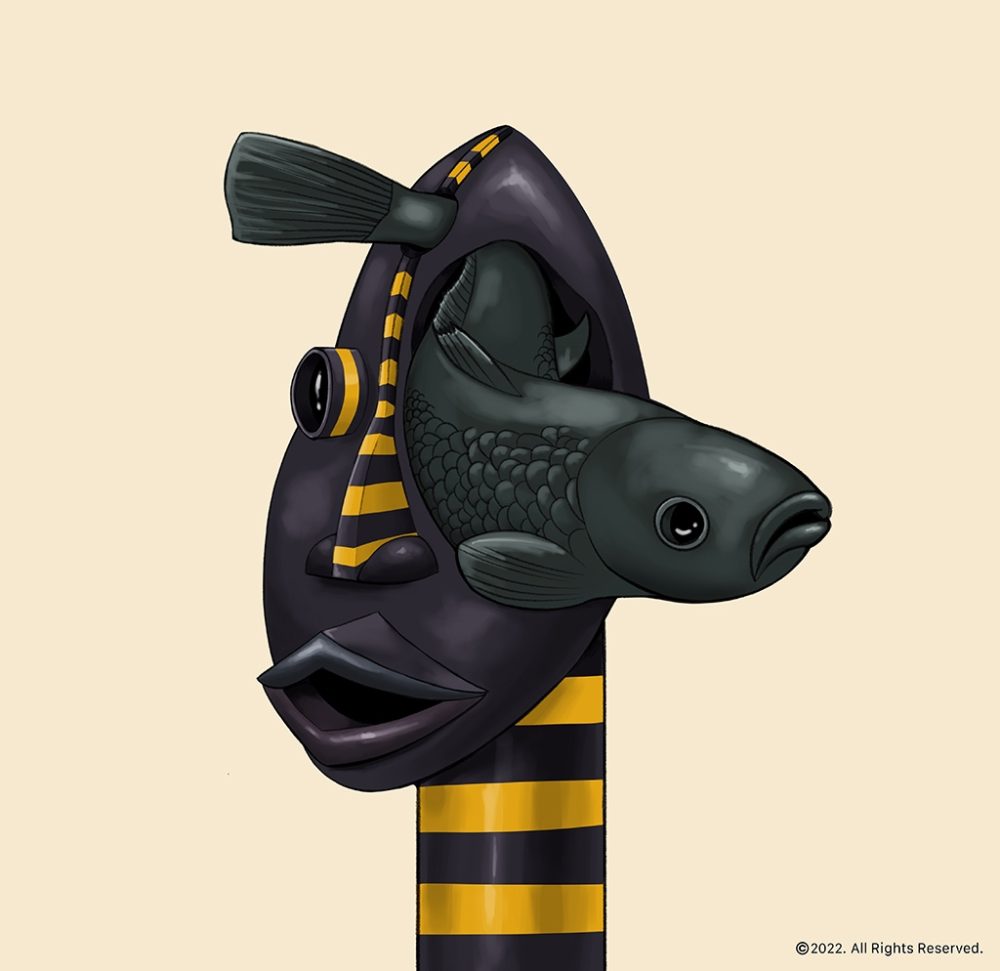
Well, it's very effective. I may not understand the lyrics, but the flow, the effect is beautiful. Do you have plans to tour with this group?
We are in the process as we speak. I went to Ghana and pulled together something I could tour with, and then Duke University decided to be a co-commissioner of the project, and also Stanford University and the Krannert Center. Duke is going to premiere this on November 6. We are bringing artists from Ghana to come and play with me for the premier. So Duke is November 6, and Stanford is going to be November 11.
Wow, I’d love to see you guys live. You need to bring this to New York. In any case, I am pleased to meet you. We will stay in touch.
Thank you so much.
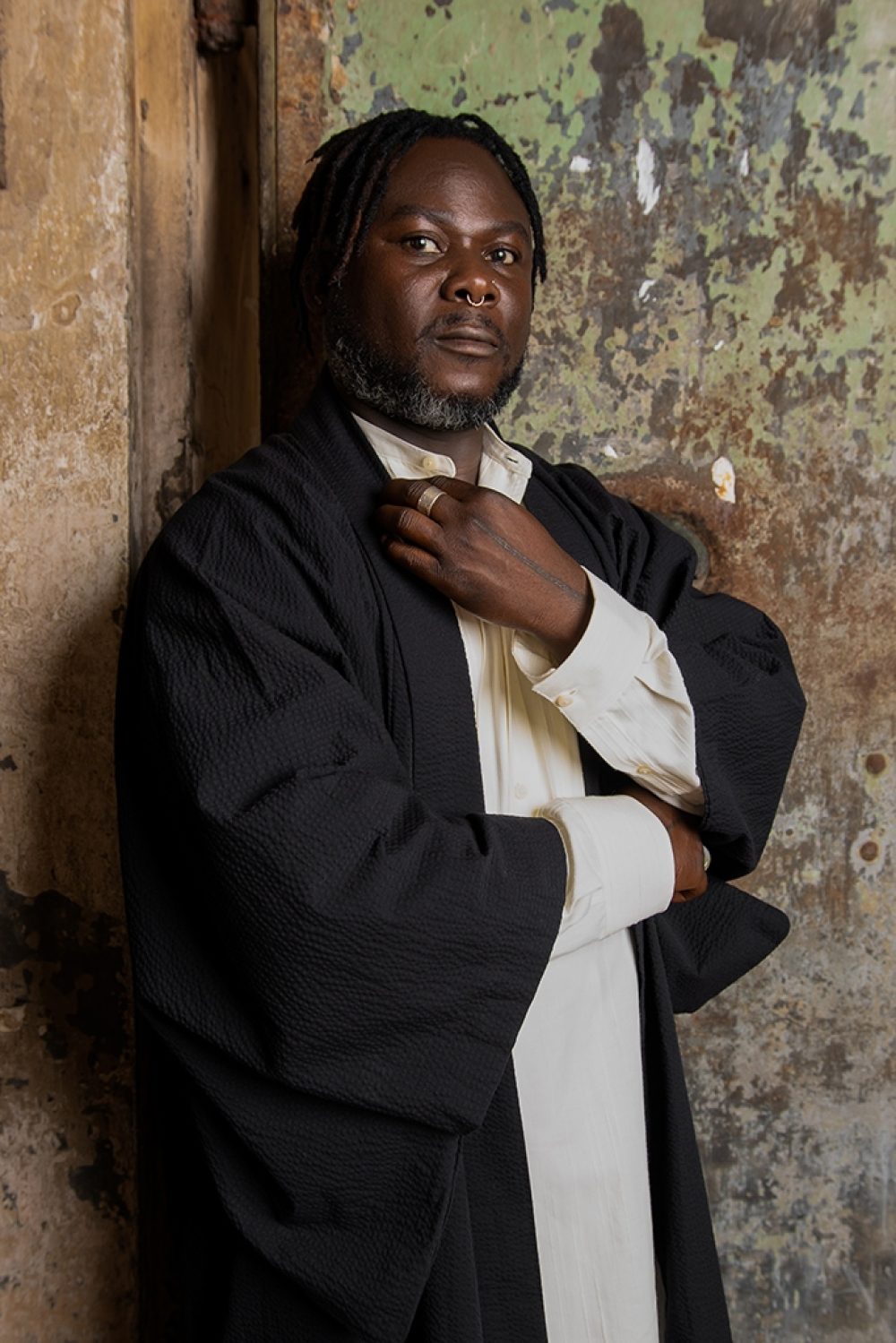
Related Audio Programs
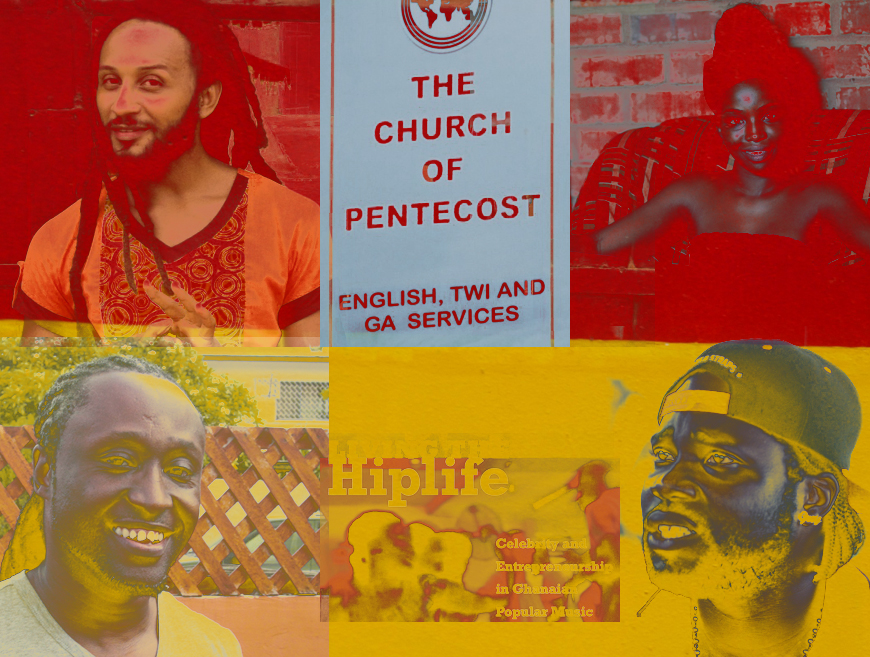
Related Articles
